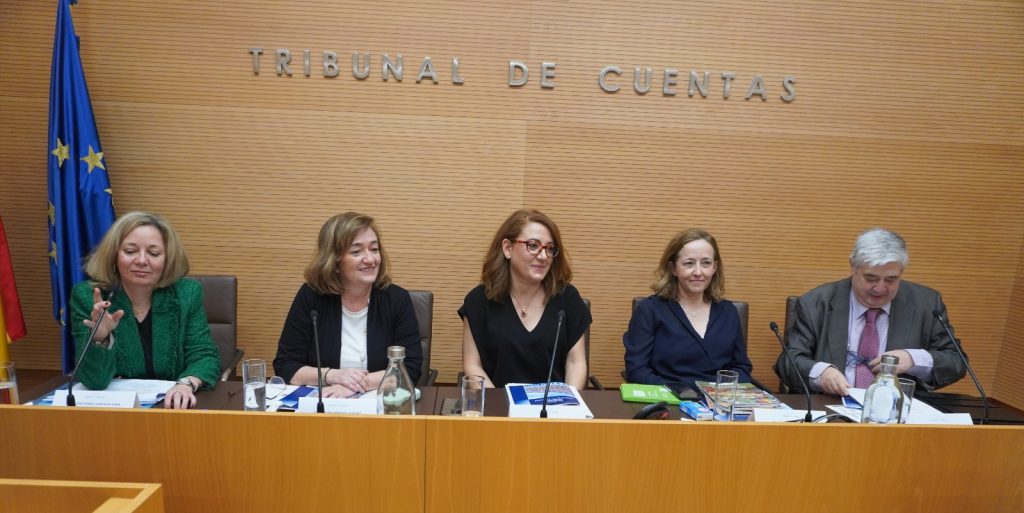
The President of the Independent Authority for Fiscal Responsibility (AIReF), Cristina Herrero, opened today the course on “Evaluation of Public Policies” organised by the Court of Auditors. In her speech, she highlighted the role that AIReF plays today as a “key and necessary” player in the evaluation of public policies in Spain.
As the President pointed out, AIReF was created as a fiscal supervisor without explicit evaluation functions in the law establishing the authority, but today it is a key player in the evaluation of public policies. Therefore, it is necessary to consolidate evaluation by providing it with the same legal backing as fiscal supervision, ensuring its financing and providing AIReF with the capacity to carry out studies on its own initiative. At present, AIReF can only carry out studies when commissioned by a public authority.
In fact, Cristina Herrero set the consolidation of evaluation as one of the main pillars of her term of office when she was appointed President of AIReF. In her opinion, evaluation is a natural and necessary complement to fiscal supervision, since it helps offset the short-termism that sometimes characterises budgetary decisions and that sometimes leads to across-the-board spending cuts. In her words, evaluation provides the evidence needed to make informed decisions in the area of public finance.
In this regard, she explained that AIReF’s vision of evaluation is closely linked to sustainability, with studies that seek to enhance the quality of policies and analyse whether they achieve the objectives for which they were designed. This makes AIReF a necessary, unique and key player in evaluation today. AIReF is also the only institution with the capacity to carry out evaluations that affect various tiers of the General Government (health, education, Minimum Income Scheme…), and which can receive commissions from all the GG and seek to be useful for public authorities, offering objective proposals based on evidence-based findings.
According to Cristina Herrero, AIReF has been contributing for years towards evaluation ceasing to be a sporadic activity. And now that the Recovery, Transformation and Resilience Plan has made it possible to create the Public Spending Evaluation Division at AIReF and has given continuity to the analyses of the Spending Review, the time has come to consolidate evaluation and improve the commissioning process.
To ensure the usefulness of the evaluations and achieve an adequate integration with the decisions of the public authority and the budgetary dimension, Cristina Herrero highlighted four elements: the creation of a strategic and budgetary planning framework linked to public policies that makes it possible to align the Sectoral Strategic Plans, the Budgetary Programmes and the instruments used, the creation of an integrated information and indicators system, the active promotion of a culture of evaluation and the increase of transparency to promote accountability.
AIReF’s Monitor Tool of Findings and Proposals
In this regard, she highlighted that AIReF has developed a Monitor Tool of Findings and Proposals that systematises and makes available to the whole of society the essential information of the evaluations. It was launched in March 2023 and includes the findings and proposals made by AIReF and the follow-up of the degree of implementation of the proposals made in the scope of the Spending Review declared by the competent authority.
The Monitor Tool is fully operational on AIReF’s website. The aim is to further improve this tool, as it is an international good practice recommended by the OECD. For example, the monitoring of the degree of implementation is currently limited to the proposals made within the framework of the Spending Review studies, but the Institution’s objective is to extend the monitoring to the evaluations of the entire General Government.





